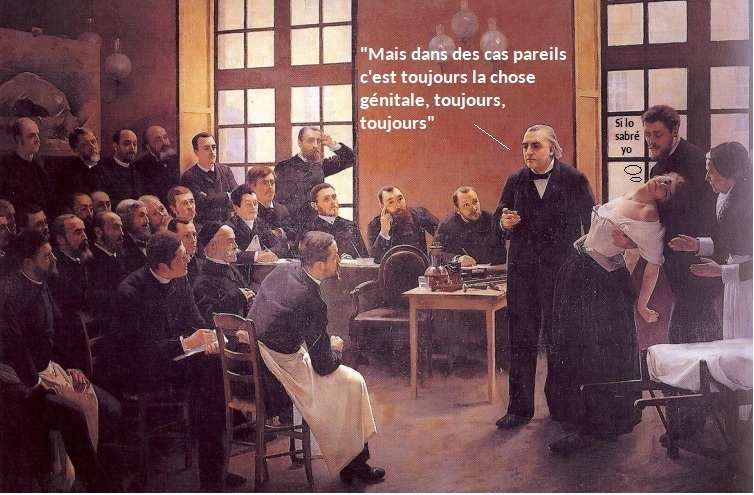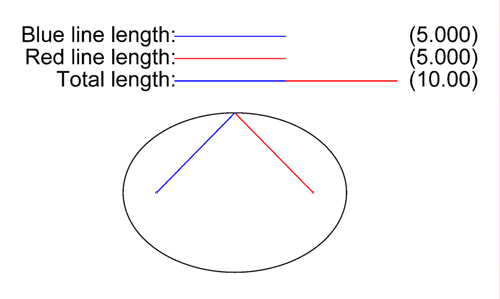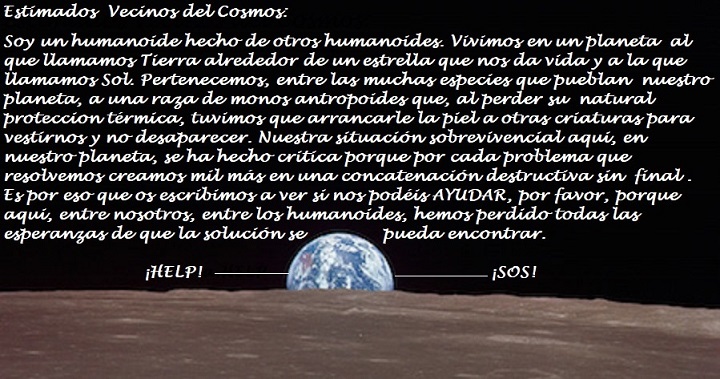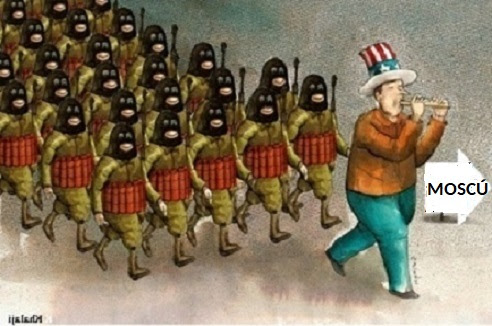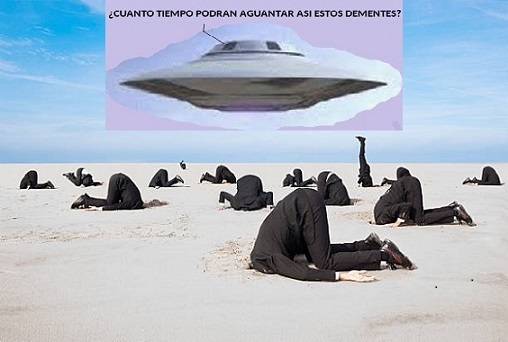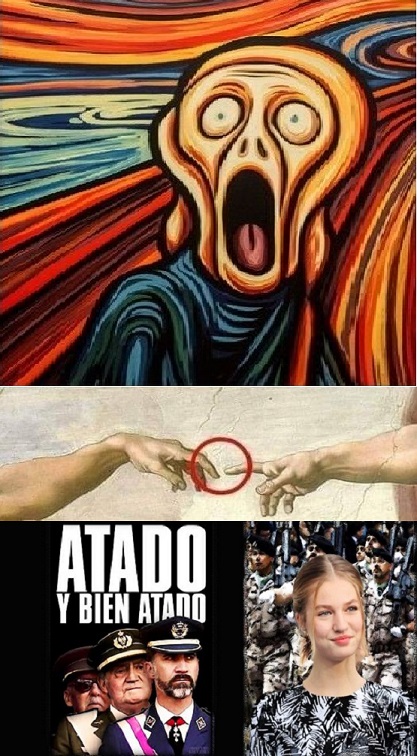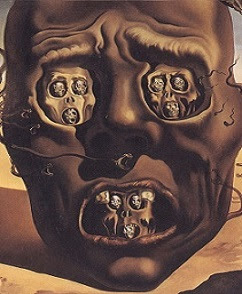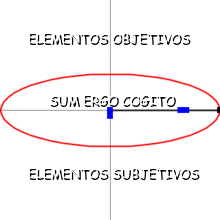Fascism, the family, and the desire for oppression
Desiring self-repression
During the years 1945-1965 (I am referring to Europe), there was a certain way of thinking correctly, a certain style of political discourse, a certain ethics of the intellectual. One had to be on familiar terms with Marx, not let one's dreams stray too far from Freud. And one had to treat sign-systems—the signifier—with the greatest respect.
These were the three requirements that made the strange occupation of writing and speaking a measure of truth about oneself and one's time
acceptable.
Then came the five brief, impassioned, jubilant, enigmatic years. At the gates of our world, there was Vietnam, of course, and the first major blow to the powers that be. But here, inside our walls, what exactly was taking place? An amalgam of revolutionary and antirepressive politics? A war fought on two fronts: against social exploitation and psychic repression? A surge of libido modulated by the class struggle? Perhaps.
At any rate, it is this familiar, dualistic interpretation that has laid claim to the events of those years. The dream that cast its spell, between the First World War and fascism, over the dreamiest parts of Europe—the Germany of Wilhelm Reich, and the France of the surrealists—had returned and set fire to reality itself: Marx and Freud in the same incandescent light.
But is that really what happened? Had the Utopian project of the thirties been resumed, this time on the scale of historical practice? Or was there, on the contrary, a movement toward political struggles that no longer conformed to the model that Marxist tradition had prescribed?
Toward an experience and a technology of desire that were no longer Freudian. It is true that the old banners were raised, but the combat shifted and spread into new zones.
Anti-Oedipus shows first of all how much ground has been covered. But it does much more than that. It wastes no time in discrediting the old idols, even though it does have a great deal of fun with Freud. Most important, it motivates us to go further.
It would be a mistake to read Anti-Oedipus as the new theoretical reference (you know, that much-heralded theory that finally encompasses everything, that finally totalizes and reassures, the one we are told we "need so badly" in our age of dispersion and specialization where "hope" is lacking).
One must not look for a "philosophy" amid the extraordinary profusion of new notions and surprise concepts: Anti-Oedipus is not a flashy Hegel. I think that Anti-Oedipus can best be read as an "art," in the sense that is conveyed by the term "erotic art," for example. Informed by the seemingly abstract notions of multiplicities, flows, arrangements, and connections, the analysis of the relationship of desire to reality and to the
capitalist "machine" yields answers to concrete questions.
Questions that are less concerned with why this or that than with how to proceed. How does one introduce desire into thought, into discourse, into action? How can and must desire deploy its forces within the political domain and grow more intense in the process of overturning the established order?
Ars erotica, ars theoretica, ars politico.
Whence the three adversaries confronted by Anti-Oedipus. Three adversaries who do not have the same strength, who represent varying degrees of danger, and whom the book combats in different ways:
1. The political ascetics, the sad militants, the terrorists of theory, those who would preserve the pure order of politics and political discourse. Bureaucrats of the revolution and civil servants of Truth.
2. The poor technicians of desire—psychoanalysts and semioloxligists of every sign and symptom—who would subjugate the multiplicity of desire to the twofold law of structure and lack.
3. Last but not least, the major enemy, the strategic adversary is fascism (whereas Anti-Oedipus' opposition to the others is more of a tactical engagement). And not only historical fascism, the fascism of Hitler and Mussolini—which was able to mobilize and use the desire of the masses so effectively— but also the fascism in us all, in our heads and in our everyday behavior, the fascism that causes us to love power, to desire the very thing that dominates and exploits us.
I would say that Anti-Oedipus (may its authors forgive me) is a book of ethics, the first book of ethics to be written in France in quite a long
time (perhaps that explains why its success was not limited to a particular "readership": being anti-oedipal has become a life style, a way of thinking and living).
How does one keep from being fascist, even
(especially) when one believes oneself to be a revolutionary militant? How do we rid our speech and our acts, our hearts and our pleasures, of
fascism? How do we ferret out the fascism that is ingrained in our behavior?
The Christian moralists sought out the traces of the flesh lodged deep within the soul. Deleuze and Guattari, for their part, pursue the slightest traces of fascism in the body.
Paying a modest tribute to Saint Francis de Sales,* one might say that Anti-Oedipus is an Introduction to the Non-Fascist Life. This art of living counter to all forms of fascism, whether already present or impending, carries with it a certain number of essential principles which I would summarize as follows if I were to make this great book into a manual or guide to everyday life:
• Free political action from all unitary and totalizing paranoia.
• Develop action, thought, and desires by proliferation, juxtaposition, and disjunction, and not by subdivision and pyramidal hierarchiza-tion.
• Withdraw allegiance from the old categories of the Negative (law, limit, castration, lack, lacuna), which Western thought has so long held sacred as a form of power and an access to reality. Prefer what is positive and multiple, difference over uniformity, flows over unities, mobile arrangements over systems. Believe that what is productive is not
sedentary but nomadic.
• Do not think that one has to be sad in order to be militant, even though the thing one is fighting is abominable. It is the connection of desire to reality (and not its retreat into the forms of representation) that possesses revolutionary force.
• Do not use thought to ground a political practice in Truth; nor political action to discredit, as mere speculation, a line of thought. Use political practice as an intensifier of thought, and analysis as a multiplier of the forms and domains for the intervention of political action.
• Do not demand of politics that it restore the "rights" of the individual, as philosophy has defined them. The individual is the product of power. What is needed is to "de-individualize" by means of multiplication and displacement, diverse combinations. The group must not be the organic bond uniting hierarchized individuals, but a constant generator of de-individualization.
• Do not become enamored of power.
It could even be said that Deleuze and Guattari care so little for power that they have tried to neutralize the effects of power linked to their own discourse. Hence the games and snares scattered throughout
the book, rendering its translation a feat of real prowess. But these are not the familiar traps of rhetoric; the latter work to sway the reader
without his being aware of the manipulation, and ultimately win him over against his will. The traps of Anti-Oedipus ate those of humor: so many invitations to let oneself be put out, to take one's leave of the text and slam the door shut.
The book often leads one to believe it is all fun and games, when something essential is taking place, something of extreme seriousness: the tracking down of all varieties of fascism, from the enormous ones that surround and crush us to the petty ones that constitute the tyrannical bitterness of our everyday lives.















































































































































































































